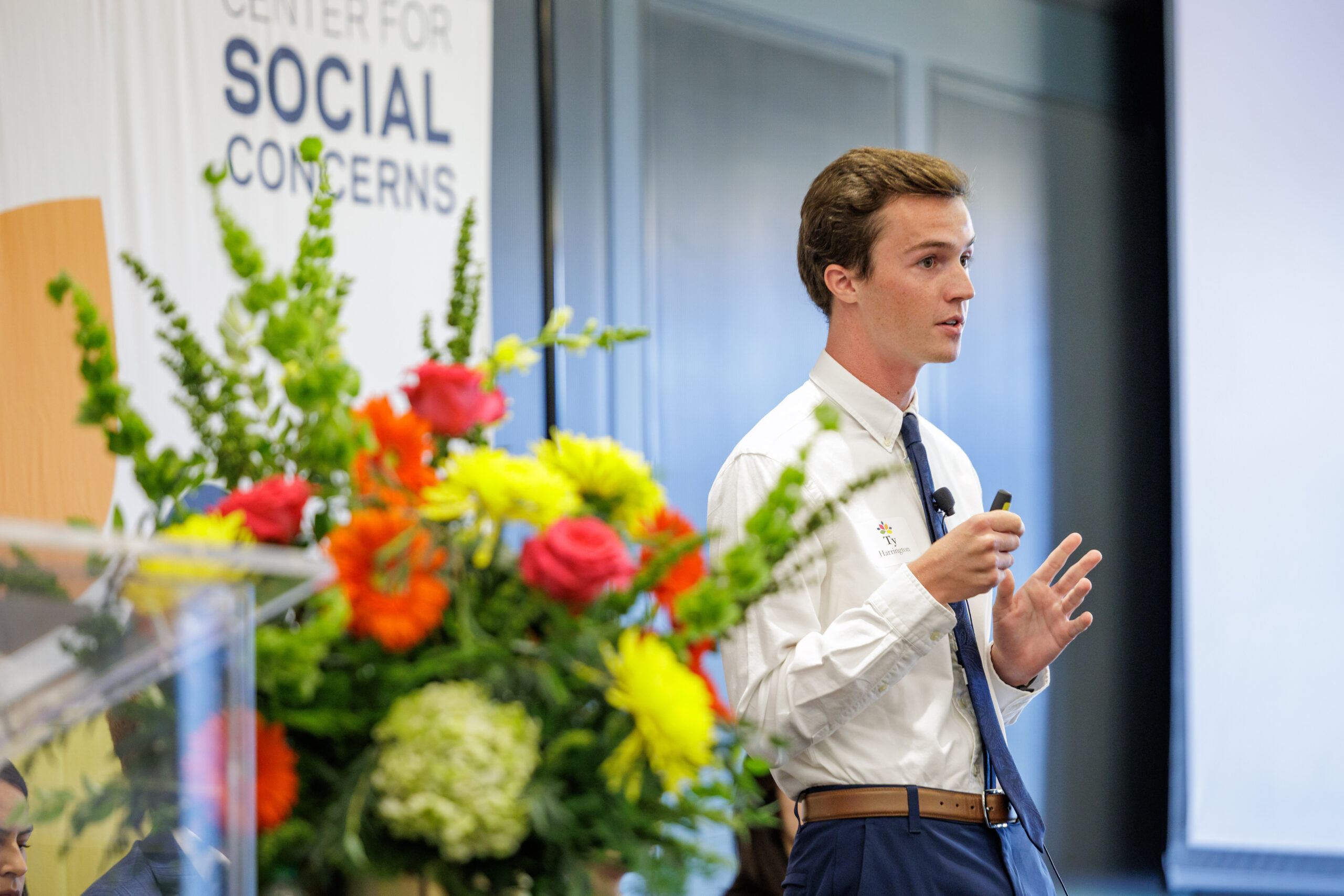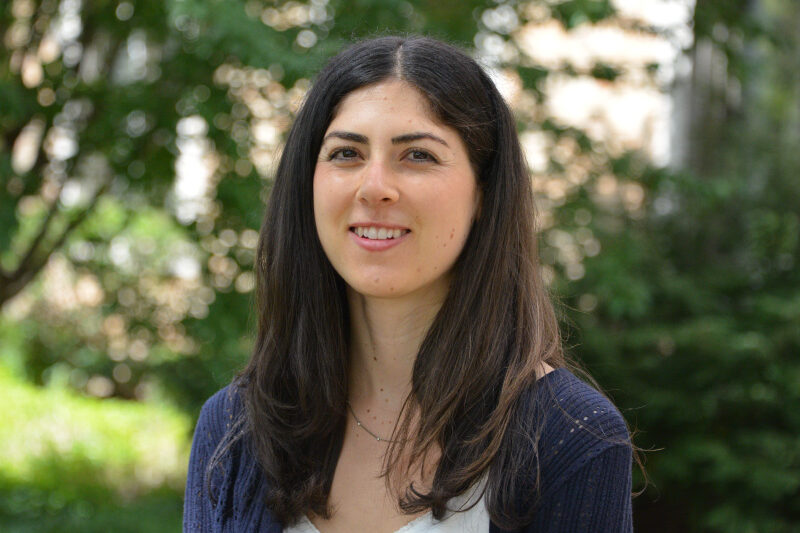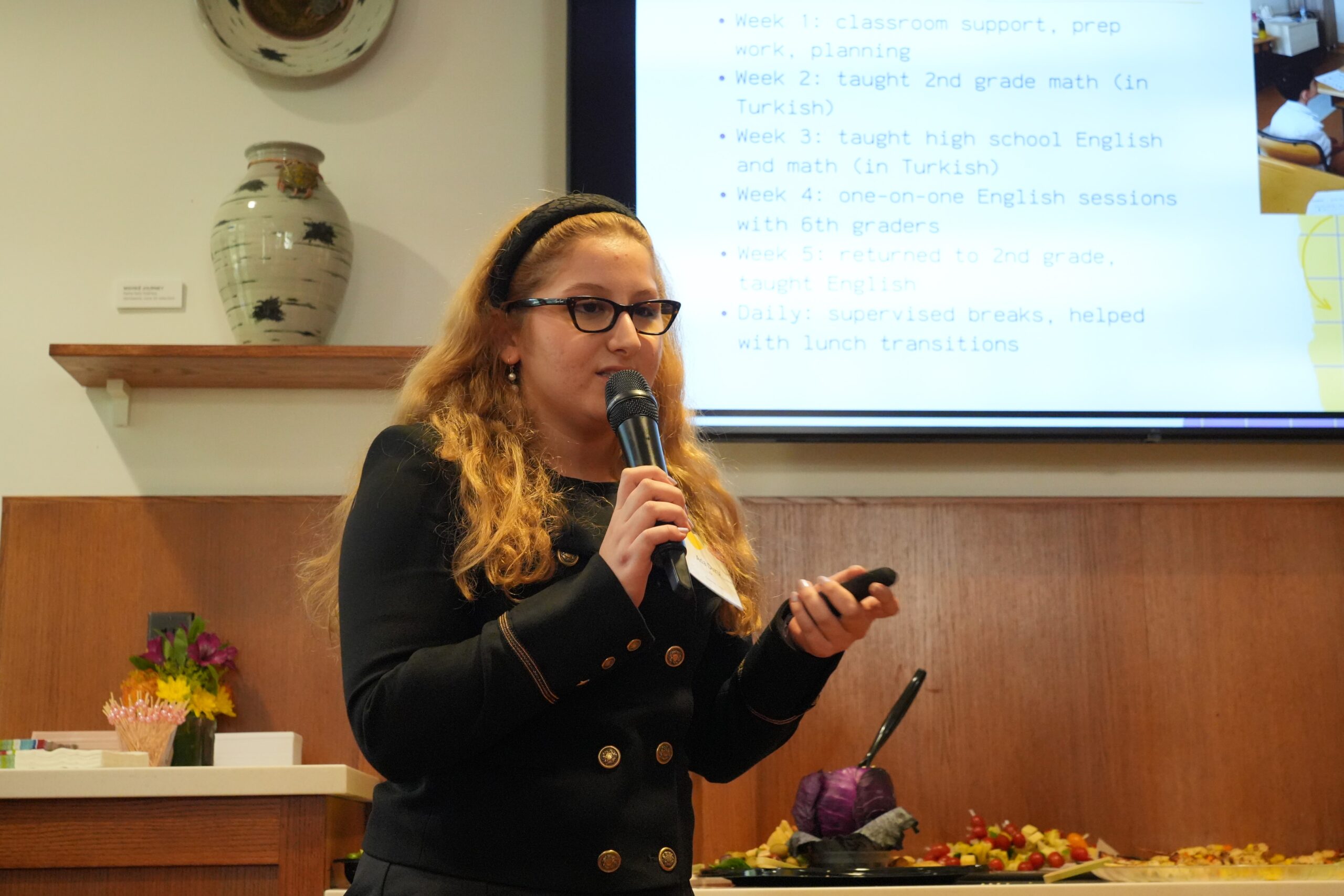Expanding the reach of research
Institute welcomes new scholar, cohort of fellows
August 25, 2025
“We have become so narrowly focused on using education for economic goals that we lose opportunities for virtue development in the classroom,” says Dustin Webster, who is joining the institute as a postdoctoral scholar this fall. “That is why this postdoc position aligns so well with the work I want to do: bringing philosophy to bear on the education of undergraduates and high school students.”
Webster is one of five new scholars joining this institute this fall, along with four research fellows: Kyla Walker, Michael Stayer, Wonu Fasasi, and Hayden Kirwan. Each of their fellowships expands the scope of the institute’s work in key areas.
Postdoctoral Research Scholar
Webster will be working with Virtues & Vocations, the institute’s national forum for scholars and practitioners across disciplines to consider how best to cultivate character in pre-professional and professional education. Among other projects, he will be developing tools for high school students for vocational discernment, the pursuit of virtue and purpose, and the cultivation of discernment skills as they engage in the college application process.
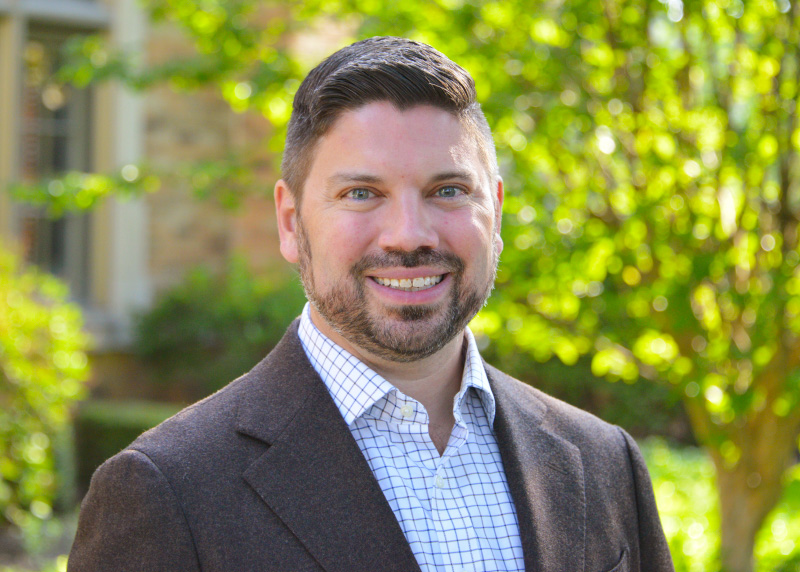
Webster brings to the institute extensive experience in philosophy and education. While in high school in Northeastern Pennsylvania, he worked at summer camps for children with disabilities, and he later worked in after-school programs in San Diego before spending two years as an English teacher in a public elementary school in Seoul, South Korea. Drawn to the philosophy for children movement, Webster earned a master’s degree in philosophy and education at the Teacher’s College at Columbia University and Ph.D. in education at University of Pennsylvania’s Graduate School of Education. From 2023 to 2025, he served as a postdoctoral fellow in UPenn’s Department of Philosophy, where he was co-director of Penn’s Project for Philosophy for the Young.
International Justice Poetry Fellow
A recent graduate of Notre Dame’s MFA in creative writing and a 2024–25 Graduate Justice Fellow at the institute, Kyla Walker is returning to the institute as the inaugural international justice poetry fellow for 2025–26. Her work at the institute will include researching and writing a prose-poetry book that examines the power of language on the page. She also plans to bring her work off the page by connecting Notre Dame students with programs in the community that she partnered with in her MFA program, including the Refugee RESET program at United Religious Community in South Bend.
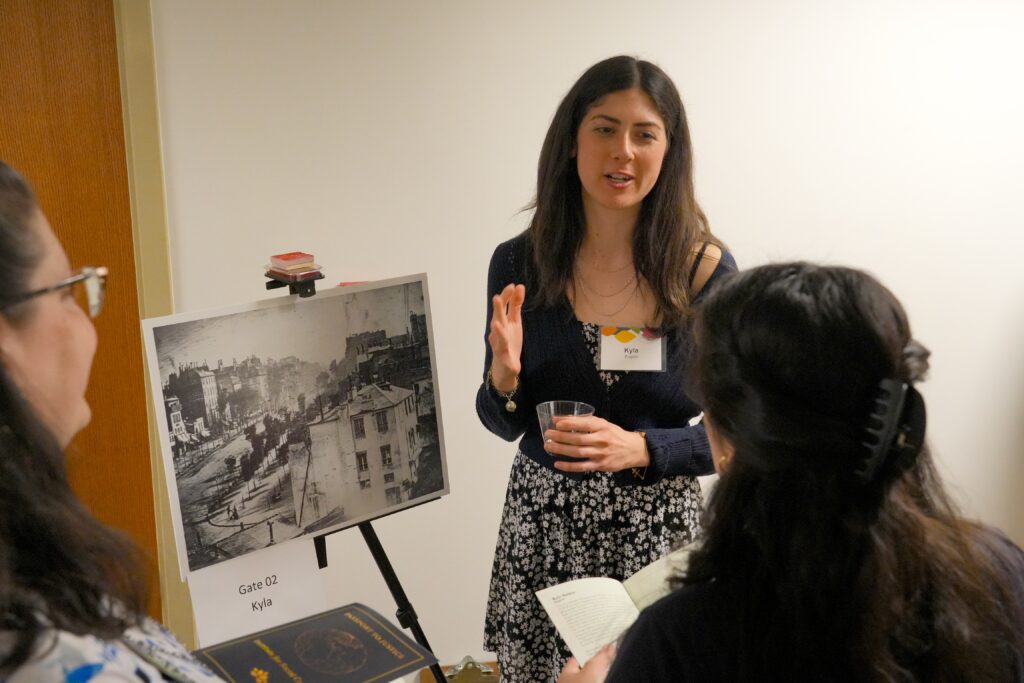
“My artistic practice is paying close attention to language and how we tell stories, the way that our voices reflect onto the page and how,” explains Walker. “We can often find what we think or what other people think through the stories that we tell, and that not only enacts change but also allows the stories that have been silenced in the past to come out and be heard. I think that that’s powerful.”
As a Turkish American, Walker grew up in Los Angeles but considers Istanbul a second home. “A lot of my stories are set in Istanbul, just as a way to return there, at least emotionally, mentally,” she says, “and right now I’m working on a project about Turkish Americans in the United States and looking at how political histories between certain countries affect personal relationships today.” Drawing from her personal experiences, writing, and research, Walker is planning to teach a course this spring on migration literature as part of her fellowship.
Education in Action Fellow
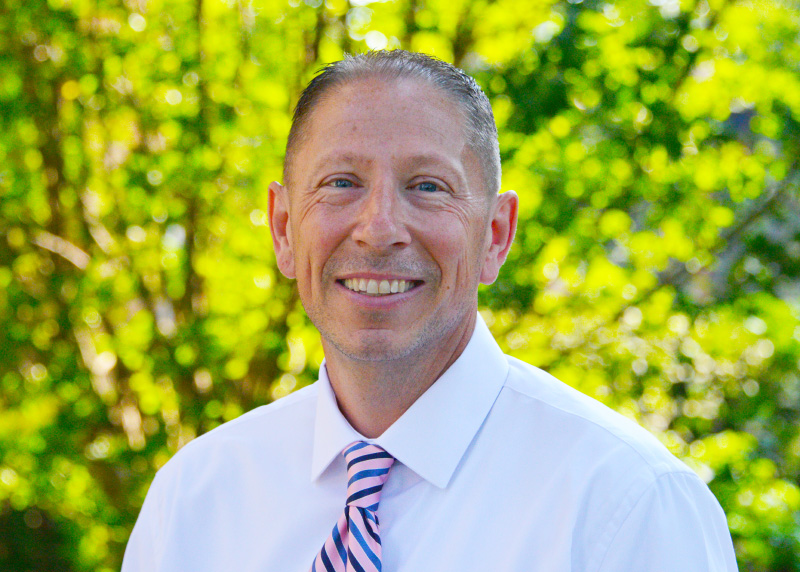
Michael Stayer joins the institute as an education in action fellow appointed by the American Institutes for Research (AIR) and the Alliance for Higher Education in Prison—one of only two such fellows appointed nationally. Working with the institute’s carceral engagement and reentry staff, Michael is contributing to the Identifying and Scaling Higher Education in Prison Programmatic Resources project. Funded by Ascendium Education Group, this partnership between AIR, the Alliance, and Jobs for the Future identifies tools and strategies that can be shared and scaled across the field to strengthen access and quality in prison higher education.
Stayer’s primary areas of research include reentry, mass incarceration, higher education initiatives, and digital skills training for returning citizens. Rooted in his Catholic upbringing, he pursues this work with the hope that his faith can inspire action that advances research for the common good. “It’s been a dream of mine to work with Notre Dame,” he shares. “The institute is doing cutting-edge research in carceral studies, and I look forward to contributing to that work during my yearlong fellowship.”
Postbaccalaureate Research Fellows
The Institute’s postbaccalaureate fellowship is designed to enable recent graduates to spend a year engaging with the community, conducting research, and discerning their vocational path to launch into a variety of professional and academic fields. As the inaugural cohort of postbaccalaureate research fellows, 2025 Notre Dame graduates Wonu Fasasi and Hayden Kirwan will be working primarily in carceral engagement and reentry, focusing on developing evidence-based best practices for reentry and participating in the research of the Crime & Justice Working Group.
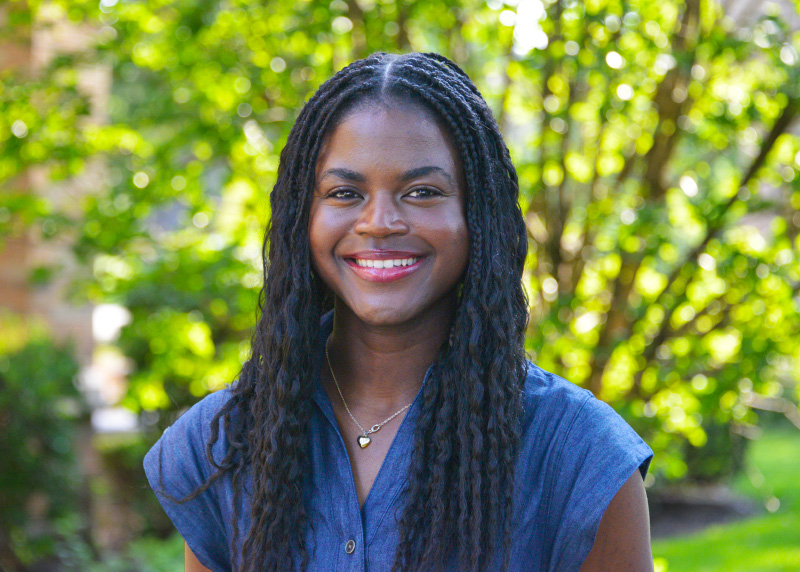
Growing up in Newark, New Jersey, Fasasi has witnessed firsthand the effects of police brutality and mass incarceration on communities of color. She recalls being drawn to questions of justice from an early age out of her experiences, which guided her academic pursuits. While an undergraduate global affairs major, Fasasi participated in the institute’s NDBridge program, working for a summer with the nonprofit Hopeprint in Syracuse, New York. She also took courses related to mass incarceration and reentry, and she views her fellowship as the perfect way to continue exploring these questions—questions that she ultimately hopes to pursue in law school.
Having grown up in Harrisonburg, Virginia, Kirwan was confronted with various types of poverty—from that experienced by the many refugee communities in the area to that of nearby Appalachian communities. He was drawn to Notre Dame because of its mission of being a force for good, and while at Notre Dame, he found the institute to be the epicenter of that mission. Kirwan first encountered the institute through the poverty studies interdisciplinary minor that he added to his major in history. In addition to his minor, he joined the Just Wage Research Lab his junior year and was a Summer Labor Fellow at US Department of Labor’s Bureau of International Labor Affairs in Washington, DC, through the institute last summer.
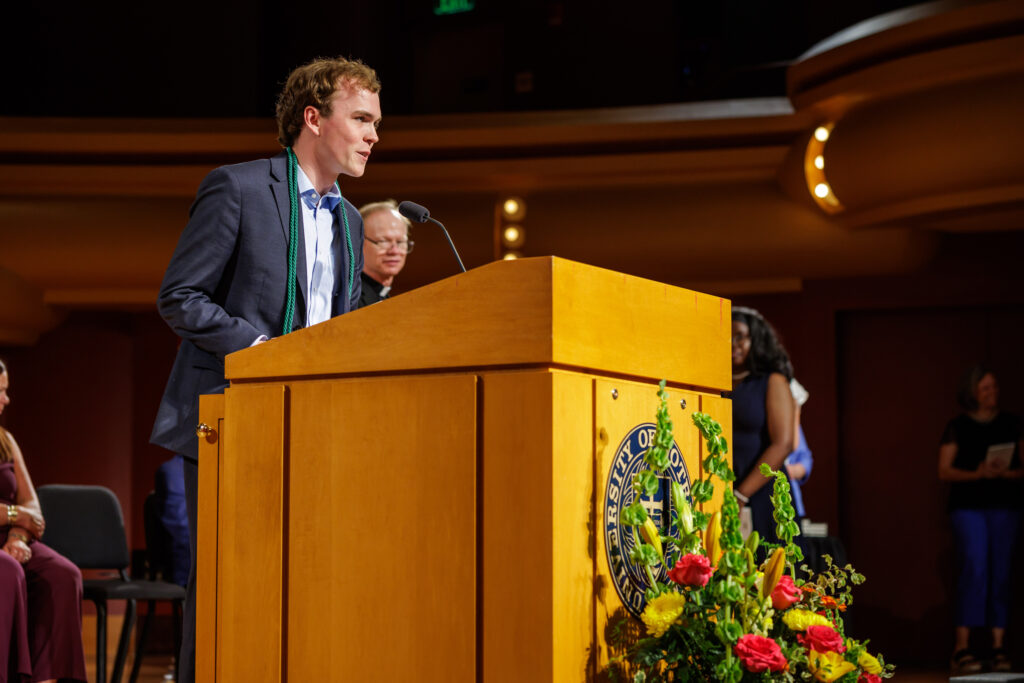
For Kirwan, the postbaccalaureate fellowship is a natural next step. “I have always been torn between loving research, on the one hand, believing that it is important for the common good, and wanting to be engaged in the community on the other,” he says. “This fellowship is a perfect fusion of the two and an opportunity to discern the next step in my vocation.”
“I am thrilled that such a talented group of scholars will be at home in the institute this fall,” Suzanne Shanahan, the Leo and Arlene Hawk Executive Director, states. “They are each an example of how the work of justice is accomplished in a variety of disciplines, and each brings experience to the institute that enhances both the scope and quality of our work.”
Related Stories
-
Social Concerns Summer Fellow returns to India for ongoing research
-
ReSearching for the Common Good: Solbee Kang
-
Bridging worlds through art—Kyla Walker joins institute as international poetry justice fellow
-
The power of encounter—RISE Hometown prepares incoming students for learning in service of justice at Notre Dame
-
The beauty of everyday democracy—Institute convenes scholars, practitioners, Luke Bretherton for democracy conference

